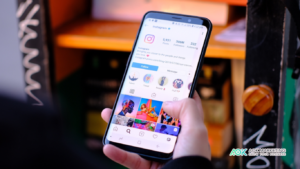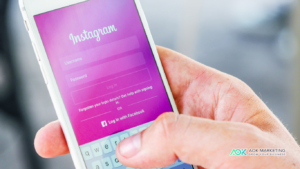In a move aimed at addressing growing concerns about mental health and body image, Instagram has announced that it will be removing beauty filters from its platform by January 2025. While this decision is seen as a positive step towards promoting authenticity, many argue that the damage caused by years of using these filters may already be irreversible. As Instagram grapples with its responsibility, users and mental health advocates are left questioning whether this action is enough to undo the deep-rooted effects these filters have had on self-esteem and body image.

The Rise of Beauty Filters: A Social Media Phenomenon
Instagram, like many other social media platforms, introduced beauty filters as a way for users to enhance their appearance quickly and effortlessly. These filters offered smooth skin, brighter eyes, fuller lips, and perfectly contoured features—instantly aligning users with society’s beauty standards. Over time, these filters became a fixture on Instagram, with many users posting edited photos as the norm rather than the exception.
But while these filters might have been fun and creative for some, they have also been criticized for promoting unrealistic beauty standards. The ease with which users could alter their appearance created a warped sense of reality, leaving many individuals, especially younger users, feeling dissatisfied with their natural looks.
The Impact of Beauty Filters on Mental Health
Over the years, beauty filters have been linked to a variety of mental health concerns, particularly among younger audiences. The distorted images created by these filters often led to body dysmorphia, a mental health condition where individuals obsess over perceived flaws in their appearance. Social media platforms, including Instagram, have been at the center of the conversation, with studies showing that heavy social media use, especially when involving altered photos, can increase feelings of inadequacy, anxiety, and depression.
The constant comparison to a filtered, “ideal” version of oneself can have devastating consequences. Many users found themselves chasing a beauty standard that didn’t exist in real life. For some, this led to a desire for cosmetic procedures to make their filtered appearance a reality. In extreme cases, the obsession with achieving “perfection” resulted in serious mental health issues, including low self-esteem and increased rates of depression.
Why Instagram is Removing Beauty Filters
The decision to remove beauty filters comes in response to growing criticism and increasing awareness of the negative effects these filters can have on users’ mental health. In recent years, governments, health organizations, and advocacy groups have put pressure on tech companies to take responsibility for the impact their platforms have on public health.
Instagram, which is owned by Meta (formerly Facebook), has been at the forefront of the debate. As social media becomes more deeply ingrained in the lives of younger generations, the role these platforms play in shaping body image and self-worth has become a critical issue. Removing beauty filters is part of Instagram’s broader strategy to foster a healthier online environment, promote authenticity, and reduce the negative mental health effects caused by filtered images.
Has the Damage Already Been Done?
While the removal of beauty filters is a positive step, many mental health experts argue that the damage caused by years of filtered images may already be deeply entrenched. Beauty filters have fundamentally changed the way people view themselves, and the effects are not easy to reverse. Here are some key ways in which beauty filters have left a lasting impact:
1. Body Dysmorphia and Self-Image Distortion
Many Instagram users have become so accustomed to seeing their altered, filtered faces that their natural appearance now feels inadequate. This is particularly true for younger users, who may have grown up using these filters, leading to distorted self-perception and increased body dysmorphia.
2. Unrealistic Beauty Standards
Beauty filters have reinforced narrow beauty ideals, often promoting Eurocentric features such as lighter skin tones, narrow noses, and larger eyes. These ideals, amplified by social media, can lead to increased pressure to conform, diminishing the appreciation for diverse appearances and reinforcing harmful stereotypes.
3. Increased Use of Cosmetic Procedures
The desire to look like a filtered version of oneself has contributed to the rising demand for cosmetic procedures. Users, especially young women, are turning to plastic surgery to replicate the looks they achieve with filters. This growing trend raises concerns about the long-term mental health and societal impacts of beauty standards driven by social media.
4. Influence on Younger Generations
Perhaps the most concerning impact of beauty filters is on younger users who are still developing their sense of self. Studies have shown that teenagers and young adults are particularly vulnerable to the negative effects of filtered images, with some studies linking social media use to increased rates of depression, anxiety, and eating disorders among this demographic.
The Push Towards Authenticity
As Instagram moves away from beauty filters, it reflects a broader cultural shift towards authenticity and self-acceptance. In recent years, the rise of body-positive influencers, campaigns promoting self-love, and movements like “No Filter” have gained traction, encouraging users to embrace their natural appearance.
This trend towards authenticity is especially important as younger generations increasingly value transparency and realness. Social media platforms, influencers, and brands that promote unfiltered, diverse representations of beauty may find themselves resonating more deeply with audiences who are tired of the pressure to look “perfect.”
What Does the Future Hold?
The removal of beauty filters on Instagram is likely just the beginning of a larger conversation about the responsibility of social media platforms in promoting healthy online environments. As the conversation around mental health and social media continues to grow, it’s possible that we’ll see more changes aimed at fostering a healthier relationship between users and the content they consume.
While beauty filters may be gone, the future of social media is still likely to be shaped by emerging technologies such as augmented reality (AR) and artificial intelligence (AI). The challenge will be ensuring that these technologies are used in ways that promote positive mental health rather than reinforce harmful ideals.
Conclusion: A Step in the Right Direction, But More Work to Be Done
Instagram’s decision to remove beauty filters is an important step in addressing the negative mental health impacts caused by filtered images. However, the damage already done by years of promoting unrealistic beauty standards will take time to reverse. Moving forward, social media platforms, influencers, and users must work together to create a healthier, more authentic digital space—one that celebrates individuality and diversity over unattainable perfection.
As social media continues to evolve, the focus should be on promoting real, unfiltered content that empowers users to feel confident and comfortable in their own skin. Only then can we begin to heal the mental health wounds caused by years of chasing a filtered ideal.
About The Author
Jana Legaspi
Jana Legaspi is a seasoned content creator, blogger, and PR specialist with over 5 years of experience in the multimedia field. With a sharp eye for detail and a passion for storytelling, Jana has successfully crafted engaging content across various platforms, from social media to websites and beyond. Her diverse skill set allows her to seamlessly navigate the ever-changing digital landscape, consistently delivering quality content that resonates with audiences.





